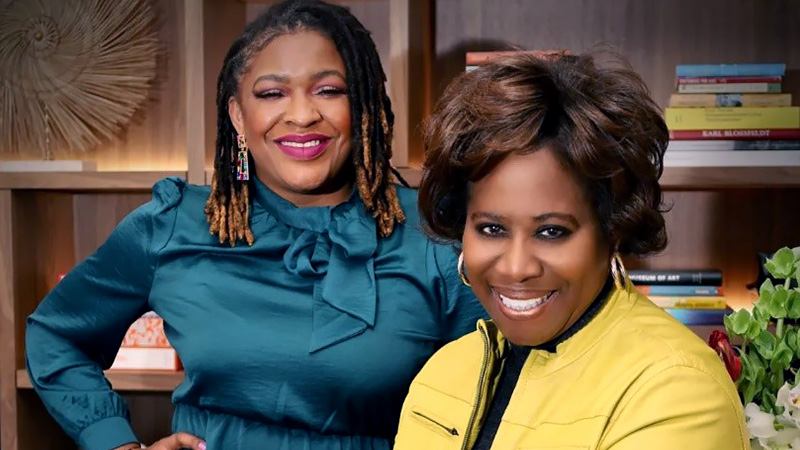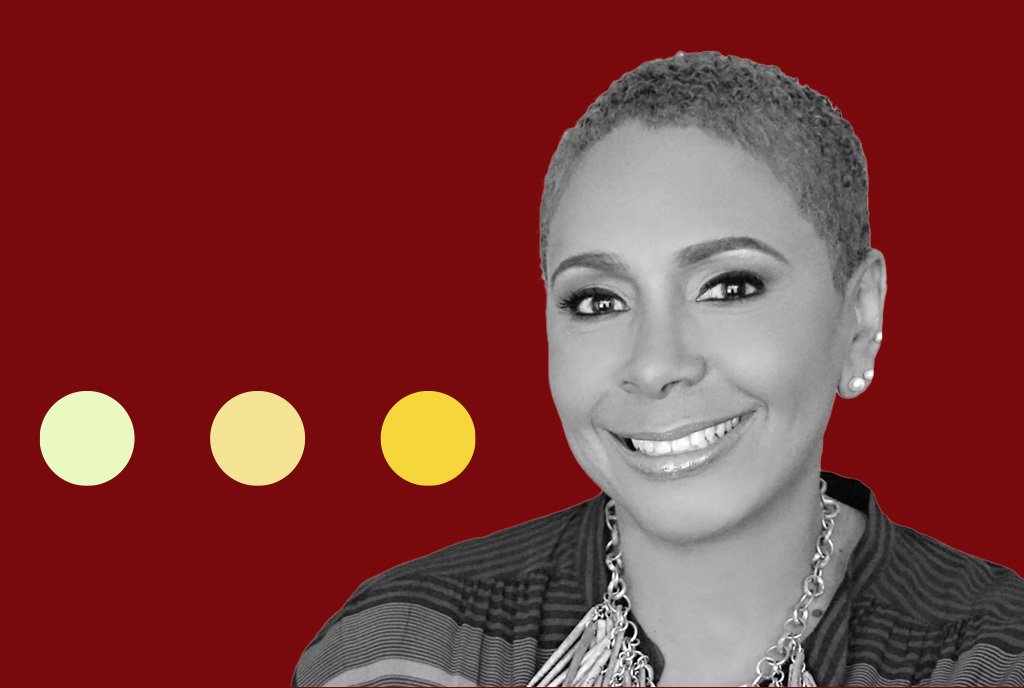I had the chance to sit with Michelle R. Thomas, Executive Director of Global Philanthropy for JPMorgan Chase, at the bank’s client center in downtown Dallas. When I met her, Michelle immediately welcomed me with open arms as I was offered a coffee from the cafe. I reveled in the view, which was far different from my day-to-day cityscape.
As my team set up, Michelle pulled me to the side to chat. Yes, I was sitting in front of a graduate from University of Oklahoma with a degree in business education and an MBA from Dallas Baptist University in Finance. And, yes, she leads and manages philanthropic and community efforts for one of the largest banks in the world. But Michelle is also a Dallas native, and talking to her felt like chatting with my neighbor. And I say that on purpose because—even as the Executive Director of Global Philanthropy for JPMorgan Chase—she knows exactly what’s happening on the other side of 30 and down 35.
I first heard Michelle speak during a meeting with executives, community leaders and the Chase CEO, Jamie Dimon. Although erudite, she’s firm and not to be messed with. That is why I was so happy to hear her story for this year’s Women’s History Month special edition.
We started from the beginning. Thomas dived into her background, explaining how she comes from a family of educators with decades of service in the Dallas Independent School District. I was curious about what piqued her interest to work in the finance industry, and discovered that it all stems from her love of education.
With teacher certifications in both the state of Texas and Oklahoma, Thomas was primed to be a game changer. But she knew the best way to be truly effective was to get into the banking industry. She still worked in education with special needs children, and remained passionate about instruction that supports the students’ unique needs.
Last November, I witnessed her passion for education during an exclusive meeting with CEO Jamie Dimon. At that meeting, which focused on the success of the 2018 Commit Partnership, I learned that JPMorgan Chase invested $3 million in the Commit Partnership. The bank did this in support of Dallas County Promise, a program that works to expand pathways to high quality careers for students leading to post-secondary access and persistence, through partnerships with local colleges. One of the institutions that benefited was local HBCU Paul Quinn College. Paul Quinn President Dr. Michael Sorrell and alumnus Evelyna Rosario–now a DEI Officer for JPMorgan Chase–spoke about the success of the partnership.
Michelle’s career in banking has always been about philanthropy. A typical day for her involves creating solutions that have “a robust market strategy focusing on the most critical and economically challenged areas.” Considering her oversight of Oklahoma and Texas—along with the $16 million in grants under her management that require her constant attention—Michelle is consumed with developing and implementing solutions for the people who need it most. She is quick to list a myriad of issues facing people in the area—including equipping people with the skills they need to advance in the labor market, bridging the wealth divide by providing underserved entrepreneurs access to capital and technical assistance, and supporting revitalization efforts in underinvested communities facing gentrification.
“The partnership is real,” Michelle explains. “There’s a lot of non-profit organizations out there, but we need to be intentional about supporting non-profit organizations that are led by people of color and serve people of color. Residents of these communities are well aware of the disparities that exist, and they will often tell you that they are tired and fatigued from being surveyed. They just want to see action happen.”
As a resident and business owner in one of these communities, I overwhelmingly appreciated Michelle’s recognition of the people’s frustrations. As she made clear, she’s here to find solutions.
We talked about leadership and what it means to be a woman in these positions. Michelle echoed what I have heard so many times from other great executives like Cynt Marshall, CEO of the Dallas Mavericks. Thomas acknowledged that she has seen a lot of progress, but we still have a way to go. She believes women of color should create opportunities for others to follow, and she also challenges those who are not women of color to do their part.
As she puts it, “Talent is created equally but the opportunity is often not.”
We took a turn to the personal side of Michelle’s life. She shared her experience as the Chair of the Black COVID Economic Recovery Committee, which she was appointed to by Councilman Casey Thomas. During the COVID pandemic, a lot of businesses and families had to pivot—and, in some cases, they suffered during the economic decline.
Talking about this period, Michelle again came out the gate with hard facts. “As a financial institution, we are aware of the disproportionate economic impact from the global pandemic,” she says. “But even before that, we knew there was a resource gap in the areas of capital for entrepreneurs of color. The pandemic simply exacerbated the issue.”
In 2020, three organizations—the DEC (Dallas Entrepreneur Center), Communities Foundation of Texas and LiftFund—came together to create the Revive Dallas Small Business Relief Fund. They raised $5 million to offer loans to support primarily minority- and women-owned small businesses. JPMorgan Chase also helped, supplying a $250,000 grant to Revive Dallas to help build the structure of the Fund.
Even though PPP (payment protection program) and the SBA were supplying relief to small businesses, Michelle and other members of the COVID Committee knew these program’s funds were not accessible for businesses that may not have the legal and financial documentation to meet the requirements for funding. Michelle even stated that, for the Relief Fund, about 40 percent of the applications submitted were incomplete. But instead of allowing these businesses to decline, this was an opportunity for the COVID Committee to help those businesses who needed it the most by offering mentorship and technical assistance.
In addition to her work on that committee, Michelle is on the Board of Directors for the Dallas Museum of Art, Methodist Health System Foundation, UT Southwestern Medical Foundation Advisory Board and Austin Street Center. I know from my own recent experience that being a board member takes a lot of your personal time and requires dedication. It’s clear to see why she gives back the way that she does. It’s not just in her DNA, it’s who she is. It is so important for all of us to give back and share our experiences to create a more equitable environment.
For all the little girls and young women out there, Michelle proves that you can stay true to who you are, stay grounded in your passion and have a successful career. She sits at a lot of tables making multi-million dollar decisions to uplift underserved communities. Politicians and executives seek her advice when making decisions for the community. The rules are simple for Michelle: She simply asks herself, “What side of the equation do you want to be on?”
One of my favorite things about my chat with Michelle was how unapologetic she is. She doesn’t mince her words when talking about the overdue attention needed to areas like South and West Dallas. She knows you can’t talk about women’s issues without a woman at the table or academic solutions without an educator at the table. As we all learned in chemistry class, elements and compounds need to complement one another, and “fit” in order to see a solution. Well, that’s what Thomas does every day, working like a mad scientist for those in need. Whether it be through her 20+ years of work in philanthropy at companies like JPMorgan Chase or the work she does with the many prestigious organizations she supports, Michelle is the pure definition of what it means to advocate. It’s not what you say, but what you actually do.
Credit:Source link



